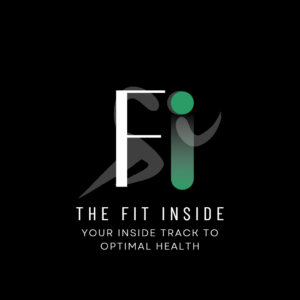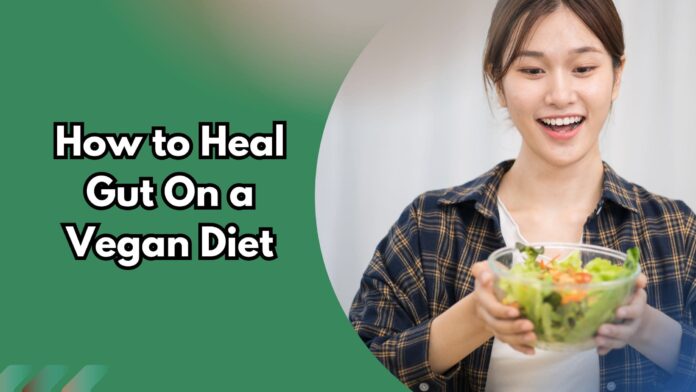A vegan diet is becoming increasingly popular nowadays as more people turn to plant-based foods instead of dairy and milk. There’s no harm in this; in fact, current research indicates that there’s not much difference between a vegan diet, a vegetarian diet, or a non-vegetarian diet in terms of meeting the overall macro and micronutrient requirements for optimal human health.
So, if you’re a vegan or considering adopting a vegan diet, this post is for you. In this article, we will explore 7 key ways to improve gut health on a vegan diet, along with some ideas to ensure you don’t miss out on any essential nutrients and get the most from your diet. If you’ve been wondering how to heal your gut on a vegan diet, you’ll find practical steps here.
Note: This post from TheFitInside is for informational purposes only and is not intended to influence anyone’s dietary or lifestyle choices. It should not be taken as medical advice or a substitute for professional guidance. Nothing in this article is meant to offend or undermine any group, belief, or ideology. Always consult a qualified healthcare professional before making any dietary changes.
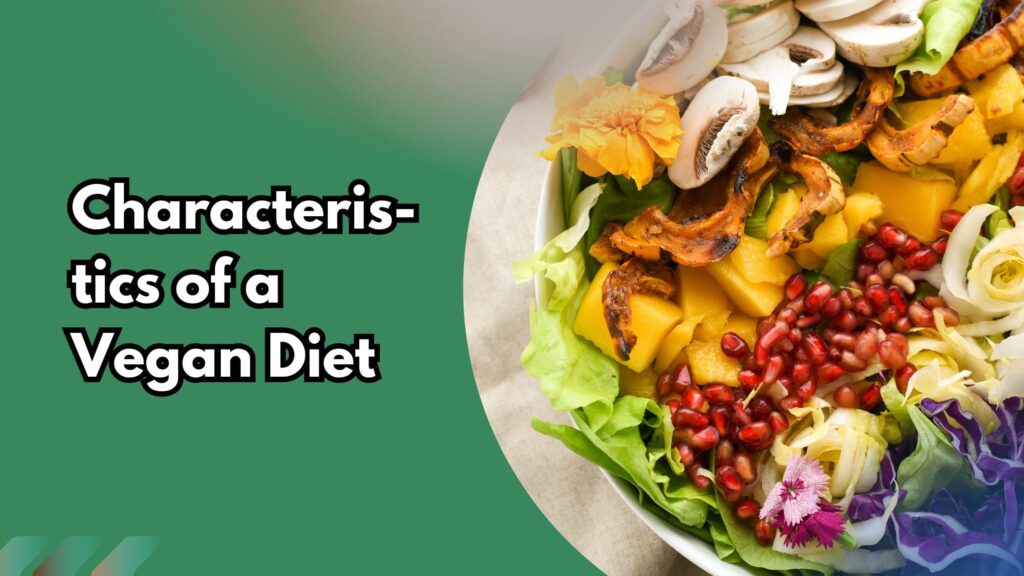
The Characteristics of a Vegan Diet
A vegan diet, in simple terms, is a type of diet that excludes all animal-based foods. It not only restricts meat and eggs but also avoids anything that could potentially harm or cause suffering to animals. This includes dairy and its byproducts.
Started in 1944 with the formation of the Vegan Society by Donald Watson, the main idea behind a vegan diet was to embrace a lifestyle that aligns with what nature has given us, without animal cruelty or exploitation.
Often, people confuse a plant-based diet with a vegan diet, but they are quite different, especially when it comes to principles like avoiding dairy and its byproducts.
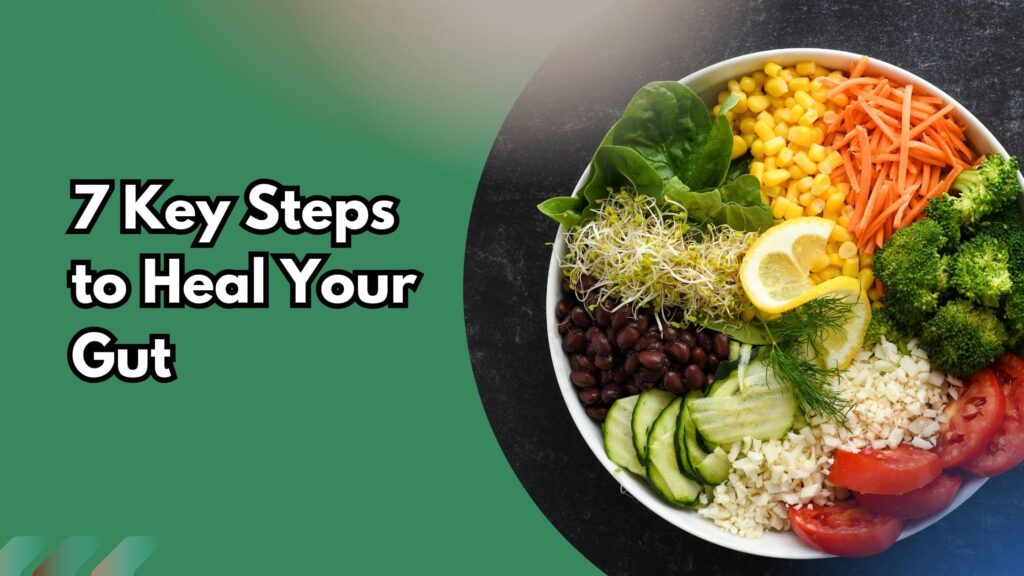
7 Key Steps to Heal Your Gut on a Vegan Diet
For your good gut bacteria (gut microbiome), a vegan diet can actually be beneficial, especially if you want to shed a few pounds or to live a healthy lifestyle without torturing your gut health. Here’s how to build a plant-based diet for gut health step by step:
#1. Prioritise Your Fibre Intake
One of the main benefits of being on a vegan diet is its fibre-rich content. You’ve got the variety, be it grains, lentils, fruits, vegetables, etc. These vegan foods for gut health are excellent as they promote a healthy gut microbiome, and also slow down the quick sugar spike in the body. Therefore, we feel full for longer, and get no energy crashes.
And even the WHO recommends 25 grams of naturally occurring dietary fibre per day, so you don’t have to worry about that. 4–5 servings of fruits and vegetables will help you complete your daily intake.
#2. Include Fermented Plant-Based Foods
Rich in probiotics, fermented plant-based foods are some of the best foods for digestive health. They pass through your digestive system and reach the colon so that they can ferment in your gut and influence the growth of good gut bacteria. Some of the options that you can include in your diet are pickles, sauerkraut, kimchi, tempeh, etc.
You can also go for drinks like Kanji (which is basically beetroot fermented in water in a glass jar). It has probiotics, which are beneficial for the gut, and is a good pick for afternoon drinks.
#3. Don’t forget Prebiotics
Prioritising prebiotics is the next step after including probiotics. They both thrive together. Prebiotics are basically non-digestible fibers that feed beneficial bacteria in our intestines. They also help strengthen the gut immune response, making it better, and reducing the overall inflammation in the gut.
Some of the great vegan foods for gut health that are rich in prebiotics include garlic, onions, leeks, asparagus, bananas, and chicory root. They’re not just good for a healthy gut microbiome but also contain other nutrients and minerals like potassium, calcium, vitamins, and antioxidants.
#4. Complete Your Protein Goals
You’ll often hear people claiming that a vegan diet lacks protein; however, that’s not accurate. A vegan diet does include protein; while some may lack a few amino acids in their complete protein profile, this can be balanced by combining it with other protein sources, often making it complete. Some of the great options are chickpeas, kidney beans, nuts, and legumes.
Protein is often underestimated when it comes to ways to improve gut health, but it is crucial. It helps with tissue repair, hormone regulation, and even maintaining gut lining integrity. You can also opt for pea or plant-based protein powders to complete your daily requirements.
#5. Limit Processed Vegan Options
As the vegan market keeps growing, more brands are popping up, promoting their products as 100% vegan. That might be true on the surface, but you never really know where things like emulsifiers, thickeners, colors, or flavors are sourced from. So if you’ve gone vegan to stand against animal exploitation, it’s worth being cautious.
Plus, processed foods in general aren’t great for your gut. They usually do more harm than good. Processed vegan foods can trigger gut inflammation and may even feed the wrong kinds of microbes in your intestines, which is the opposite of building a healthy gut microbiome.
#6. Eat more Whole Foods
Instead of chasing fancy options, sticking to simple, old-school choices is often the best thing you can do for your body. Filling your plate with a variety of fruits, vegetables, grains, legumes, tofu, and other whole foods naturally boosts your fiber intake, helping you stay full for longer. These are some of the best foods for digestive health, as they also nourish a healthy gut microbiome.
It’s not just about staying full. The fiber in whole plant foods also slows down sugar release, so you don’t get those quick spikes and crashes. At the same time, it feeds the good bacteria in your gut and keeps your microbiome strong.
#7. Fill Nutrient Gaps Consciously
While being on a vegan diet, you may often miss out on nutrients like B₁₂, iron, zinc, vitamin D, iodine, and omega-3s. That’s why keeping track of what you’re eating and making sure your food actually covers these needs becomes even more important than it might on a vegetarian or non-vegetarian diet.
The good news is, with the right mix of whole foods and smart supplementation when needed, you can easily fill these gaps and keep your plant-based diet for gut health balanced without compromising your values.
Related: Gut Healing Diet Mistakes!
So, Can a Vegan Diet Heal Your Gut?
Of course, as long as you approach it wisely. A great vegan diet isn’t just about protein or fats; it’s also about getting enough vitamins, minerals, and anti-inflammatory foods that support your gut and overall health. Studies now show that a well-planned vegan diet is no less effective than a vegetarian or non-vegetarian one.
For example, the systematic review “Effect of Plant-Based Diets on Gut Microbiota” by Sidhu et al., published in Nutrients (2023), found that plant-based diets for gut health gave short- to moderate-term benefits (up to 13 months) for gut microbiome composition and other key markers in both healthy people and those with conditions like obesity, cardiovascular disease, and rheumatoid arthritis.
So the short answer is yes, you can heal your gut on a vegan diet. With mindful planning and the right vegan foods for gut health, it really works. TheFitInside recommends giving it a try, but always with proper planning and expert guidance.
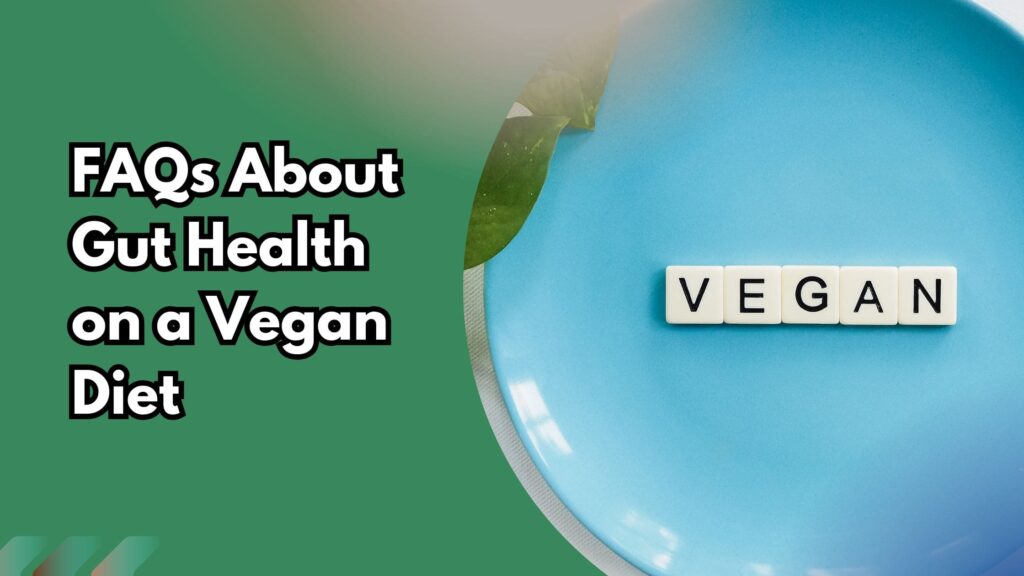
Common Questions About Gut Health on a Vegan Diet
1. Can going vegan actually improve gut health?
Yes, if it’s done right. A whole-food vegan diet packed with fiber, prebiotics, and anti-inflammatory foods can feed good bacteria, reduce inflammation, and help your microbiome thrive. On the other hand, relying too much on processed vegan foods won’t give you the same benefits.
2. Which vegan foods support a healthy gut?
Fruits, vegetables, lentils, grains, nuts, and seeds are all great options for your gut. Fermented foods like kimchi, sauerkraut, tempeh, and plant-based yogurts also add probiotics that help balance your good gut bacteria. These are some of the best foods for digestive health and help maintain a healthy gut microbiome.
3. Is a vegan diet easy on digestion?
Mostly yes. The high fiber in plant foods helps digestion and keeps things regular. But if you jump straight into too much fiber too fast, you might get bloating or discomfort. Slowly increasing your intake and staying hydrated are easy ways to improve gut health.
4. How can a vegan diet calm gut inflammation?
Plant foods are full of antioxidants, polyphenols, and anti-inflammatory compounds that soothe the gut. Plus, the fiber feeds good bacteria, which produce short-chain fatty acids (SCFAs) that protect the gut lining and lower inflammation. That’s one reason why following a plant-based diet for gut health works so well.
5. What else can I do to improve my gut health on a vegan diet?
Beyond food, things like managing stress, staying hydrated, and keeping a consistent sleep schedule make a big difference. Even light movement, like walking or yoga, can support digestion and help maintain a healthy gut microbiome.
